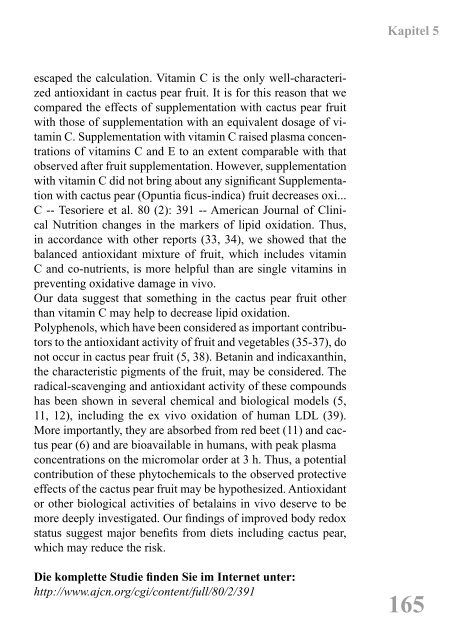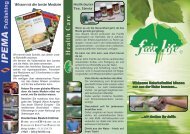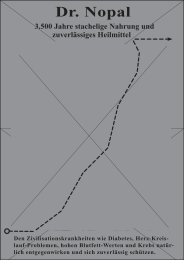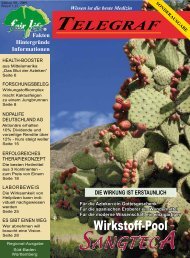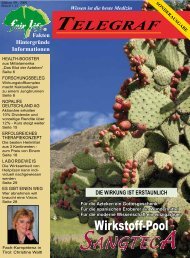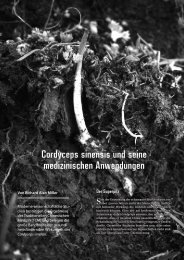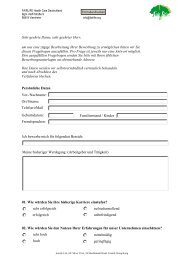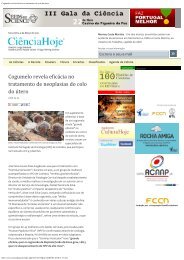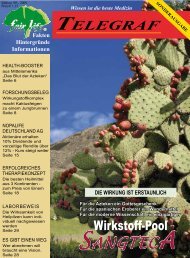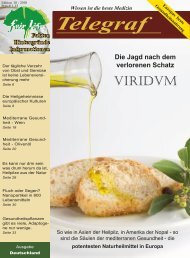Sie wollen auch ein ePaper? Erhöhen Sie die Reichweite Ihrer Titel.
YUMPU macht aus Druck-PDFs automatisch weboptimierte ePaper, die Google liebt.
escaped the calculation. Vitamin C is the only well-characterized<br />
antioxidant in cactus pear fruit. It is for this reason that we<br />
compared the effects of supplementation with cactus pear fruit<br />
with those of supplementation with an equivalent dosage of vitamin<br />
C. Supplementation with vitamin C raised plasma concentrations<br />
of vitamins C and E to an extent comparable with that<br />
observed after fruit supplementation. However, supplementation<br />
with vitamin C did not bring about any significant Supplementation<br />
with cactus pear (Opuntia ficus-indica) fruit decreases oxi...<br />
C -- Tesoriere et al. 80 (2): 391 -- American Journal of Clinical<br />
Nutrition changes in the markers of lipid oxidation. Thus,<br />
in accordance with other reports (33, 34), we showed that the<br />
balanced antioxidant mixture of fruit, which includes vitamin<br />
C and co-nutrients, is more helpful than are single vitamins in<br />
preventing oxidative damage in vivo.<br />
Our data suggest that something in the cactus pear fruit other<br />
than vitamin C may help to decrease lipid oxidation.<br />
Polyphenols, which have been considered as important contributors<br />
to the antioxidant activity of fruit and vegetables (35-37), do<br />
not occur in cactus pear fruit (5, 38). Betanin and indicaxanthin,<br />
the characteristic pigments of the fruit, may be considered. The<br />
radical-scavenging and antioxidant activity of these compounds<br />
has been shown in several chemical and biological models (5,<br />
11, 12), including the ex vivo oxidation of human LDL (39).<br />
More importantly, they are absorbed from red beet (11) and cactus<br />
pear (6) and are bioavailable in humans, with peak plasma<br />
concentrations on the micromolar order at 3 h. Thus, a potential<br />
contribution of these phytochemicals to the observed protective<br />
effects of the cactus pear fruit may be hypothesized. Antioxidant<br />
or other biological activities of betalains in vivo deserve to be<br />
more deeply investigated. Our findings of improved body redox<br />
status suggest major benefits from diets including cactus pear,<br />
which may reduce the risk.<br />
Die komplette Studie finden Sie im Internet unter:<br />
http://www.ajcn.org/cgi/content/full/80/2/391<br />
Kapitel 5<br />
165


